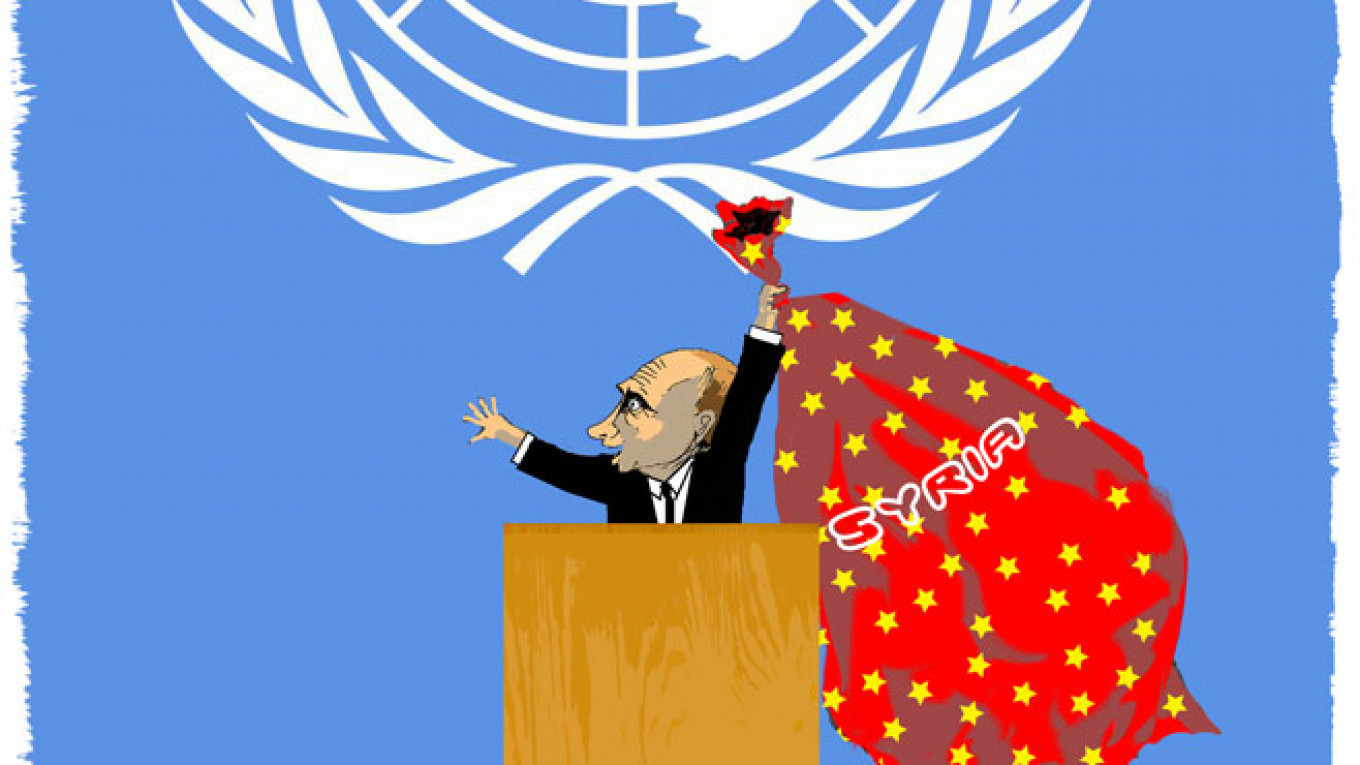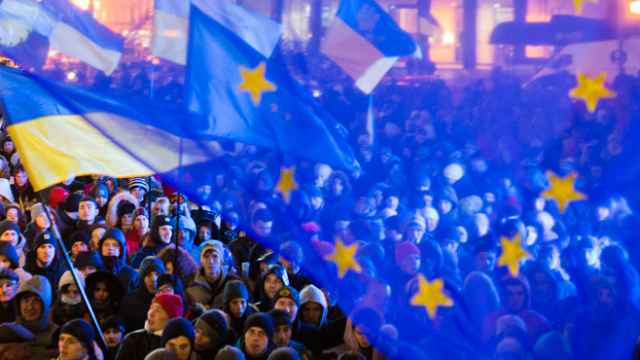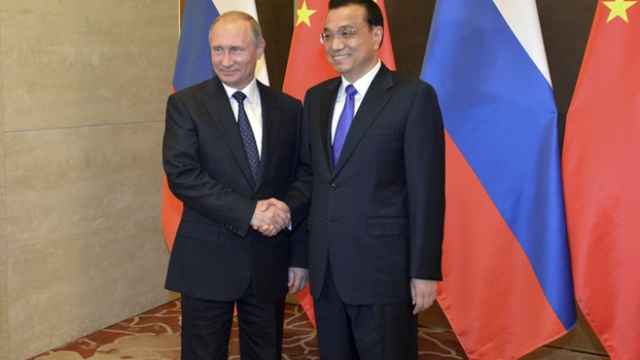President Vladimir Putin's speech before the UN General Assembly this coming Monday has every chance of becoming the main Russian foreign policy event of the year. Putin's fourth appearance at that distinguished podium — especially after an absence of 10 years — is bound to draw a great deal of attention.
Putin will most likely focus on his favorite topics: the importance of combating international terrorism and extremism, the need to respect national sovereignty and the immorality of "double standards," sanctions and pressure politics in international relations. He will probably link these topics to the crisis in the Middle East while trying to avoid focusing attention on Ukraine and the confrontation between Russia and the West that resulted from the annexation of Crimea.
On the one hand, it seems the Russian president has a good chance to put forward a positive agenda for the Middle East and strengthen Russia's role in it, and on the other hand, to divert international attention from what appears to be an endlessly smoldering conflict in Ukraine.
Those chances are growing as Europe and the U.S. become increasingly hysterical about Russia's actions in Syria: most recent publications compare the situation with Moscow's initial moves in Ukraine and accuse Russia of creating yet another hotbed of instability.
In my opinion, the two conflicts are fundamentally different. In the first, Russia acted as an aggressor against the legitimate government of a neighboring country. In the second, it offers assistance to a legitimate government.
In the first, Russia contributed to a separatist movement in the Donbass. In the second, it is trying to ensure Syria's territorial integrity. And finally, in the first Russia has done little to achieve reconciliation, whereas in the second Moscow fulfilled its 2013 agreement to help destroy Syria's chemical weapons. Therefore, the West is making a mistake if it does not listen to Putin.
Putin is likely to propose the creation of an international coalition to combat the Islamic State and a compromise concerning the status of Syrian President Bashar Assad, and Washington has serious rational and emotional reasons to reject those proposals.
However, the "larger game" in the Middle East is so complicated that Washington's straightforward methods are probably not capable of resolving it. A coalition might prove the only realistic means for combating the Islamists inasmuch as the U.S.-trained Iraqi regular army and the anti-government rebels in Syria cannot put up any serious resistance to the Islamic State.
The task facing the West is not to simply reject Putin's proposals out of hand, but to draw a distinction between cooperation in the fight against terror and Russia's full return to global politics.
It seems that Moscow is using the situation in Syria to draw attention to the problems it considers most significant and as a tool to remind the West — and primarily the U.S. — that unilateral solutions are not always effective.
It is unlikely that Russia is planning to launch a new Afghanistan-style military campaign in Syria as some observers have suggested. If Putin's initiative to create an international coalition does not find support, Russia will not stand behind Assad "to the bitter end" and devote significant resources and military forces to defending his regime.
Therefore, despite Russia's seemingly advantageous position in the discussion taking shape at the UN, the West has no need to agree with Putin's proposals. In the days and weeks ahead, each decision made in this area will be based on the situation at the given moment and will not reflect some larger strategy.
That is why I am convinced that Putin's upcoming speech before the UN General Assembly will not so much resolve long-standing problems as it will invite the West to renew its dialogue with Russia in one particular area. At best, it will serve as the starting point for extended negotiations, but Putin's major talking points will not become a guide to action.
Any rash reactions to the speech — in whatever form it might take — risk missing the mark and leading to a dead end. After all, Putin firmly believes that only a weak opponent expresses a willingness to hold talks and reach a compromise. That is exactly how he interprets Washington's changing position on Syria. But isn't his own openness to dialogue an acknowledgement of the changed geopolitical position in which Russia now finds itself?
Vladislav Inozemtsev is a fellow with the IWM in Vienna and non-resident senior associate with the Center for Strategic and International Studies in Washington.
A Message from The Moscow Times:
Dear readers,
We are facing unprecedented challenges. Russia's Prosecutor General's Office has designated The Moscow Times as an "undesirable" organization, criminalizing our work and putting our staff at risk of prosecution. This follows our earlier unjust labeling as a "foreign agent."
These actions are direct attempts to silence independent journalism in Russia. The authorities claim our work "discredits the decisions of the Russian leadership." We see things differently: we strive to provide accurate, unbiased reporting on Russia.
We, the journalists of The Moscow Times, refuse to be silenced. But to continue our work, we need your help.
Your support, no matter how small, makes a world of difference. If you can, please support us monthly starting from just $2. It's quick to set up, and every contribution makes a significant impact.
By supporting The Moscow Times, you're defending open, independent journalism in the face of repression. Thank you for standing with us.
Remind me later.








